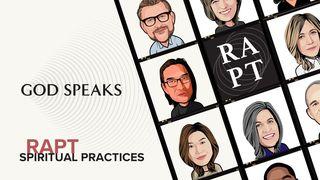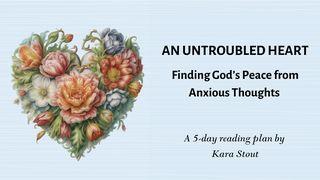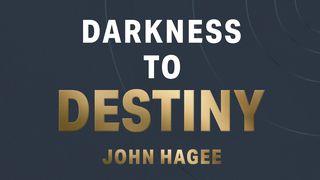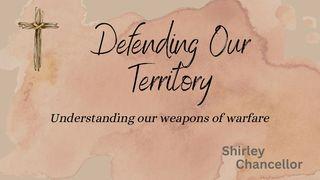Lent For EveryoneSample

EASTER MONDAY
One of the things people have often said about the early Christians' belief in Jesus' resurrection is that they were obviously so devastated by the failure of their dreams and hopes that they found a way of saying it was all right after all. A grand-sounding phrase has been developed to describe this: 'cognitive dissonance', the clash between something you have passionately believed and something which now turns out to be true. They jangle against one another, like badly played musical notes, and eventually people find a way of bringing them back into harmony. That way they don't have to adjust their original beliefs. Much easier that way.
Part of the answer to this is that the early Christians certainly weren't expecting anything like Jesus' resurrection. It wasn't part of the game plan. 'Resurrection' was something that would happen to everyone at the end, not to one person in the middle of history. They wanted Jesus to be 'king of the Jews' in the fairly ordinary sense; look at James and John and their request in chapter 20. They weren't expecting Jesus to die, especially to be crucified. They were not twiddling their thumbs on Holy Saturday saying, 'Well, that was very nasty, but of course he'll be back tomorrow.' If they were going to make up stories to explain that Jesus' project would somehow go ahead, they would have done what other Jewish groups of their day did when their leaders were killed. They would find themselves another leader, perhaps from the same family. In fact, Jesus' own brother James became the great leader of the Jerusalem church for the next 30 years. But nobody said James was the Messiah.
But the other part of the answer to what the sceptics have said is that it is in fact the sceptics, from that day to this, who are guilty of the very thing of which they are accusing the Christians. It is the sceptical world-view that has been blown apart by Jesus' resurrection. Ever since that day they have been only too eager to find stories to tell to show that actually it didn't happen, that their original world-view (in which dead people cannot, do not and will not rise again) was correct after all, that some other story will explain it. You can feel the sigh of relief in the sceptical camp each time one of these stories is put forward, however unlikely it may be. Phew! We don't need to believe that Jesus rose again. That's all right then. We can cope with him as a great teacher (with whom we may from time to time disagree). We can even see his death as a great example of love in action. We can share his vision of a world in which people live at peace. Only don't ask us to accept that he rose from the dead. That's just too much.
This reaction of the sceptics to the news of the empty tomb began very early, as we find here. Look at the way all the different parties are involved. The guards tell the priests. The priests tell the elders. Together they bribe the soldiers. They agree to tell the governor their new story. Phew! That's all right. We can continue with business as usual. Life as before — in which we run the world, we call the shots, we are the people in power. Al Gore, the former US Vice President, wrote about the ecological crisis under the title An Inconvenient Truth. That's as may be. The biggest inconvenient truth of all — inconvenient not just for a 'modern world-view' but for all people in positions of power and responsibility — is the belief that Jesus of Nazareth rose from the dead. Large sums of money change hands, then and now, to make sure the rumour is squashed. But it's all in vain. The best answer to the sceptics is the fact that there is now a community of people who not only say Jesus was raised from the dead. They show it by their own lives.
TODAY
Sovereign Lord, help us to meet the scorn of unbelievers with the evidence, in what we do and who we are, that you are indeed alive.
One of the things people have often said about the early Christians' belief in Jesus' resurrection is that they were obviously so devastated by the failure of their dreams and hopes that they found a way of saying it was all right after all. A grand-sounding phrase has been developed to describe this: 'cognitive dissonance', the clash between something you have passionately believed and something which now turns out to be true. They jangle against one another, like badly played musical notes, and eventually people find a way of bringing them back into harmony. That way they don't have to adjust their original beliefs. Much easier that way.
Part of the answer to this is that the early Christians certainly weren't expecting anything like Jesus' resurrection. It wasn't part of the game plan. 'Resurrection' was something that would happen to everyone at the end, not to one person in the middle of history. They wanted Jesus to be 'king of the Jews' in the fairly ordinary sense; look at James and John and their request in chapter 20. They weren't expecting Jesus to die, especially to be crucified. They were not twiddling their thumbs on Holy Saturday saying, 'Well, that was very nasty, but of course he'll be back tomorrow.' If they were going to make up stories to explain that Jesus' project would somehow go ahead, they would have done what other Jewish groups of their day did when their leaders were killed. They would find themselves another leader, perhaps from the same family. In fact, Jesus' own brother James became the great leader of the Jerusalem church for the next 30 years. But nobody said James was the Messiah.
But the other part of the answer to what the sceptics have said is that it is in fact the sceptics, from that day to this, who are guilty of the very thing of which they are accusing the Christians. It is the sceptical world-view that has been blown apart by Jesus' resurrection. Ever since that day they have been only too eager to find stories to tell to show that actually it didn't happen, that their original world-view (in which dead people cannot, do not and will not rise again) was correct after all, that some other story will explain it. You can feel the sigh of relief in the sceptical camp each time one of these stories is put forward, however unlikely it may be. Phew! We don't need to believe that Jesus rose again. That's all right then. We can cope with him as a great teacher (with whom we may from time to time disagree). We can even see his death as a great example of love in action. We can share his vision of a world in which people live at peace. Only don't ask us to accept that he rose from the dead. That's just too much.
This reaction of the sceptics to the news of the empty tomb began very early, as we find here. Look at the way all the different parties are involved. The guards tell the priests. The priests tell the elders. Together they bribe the soldiers. They agree to tell the governor their new story. Phew! That's all right. We can continue with business as usual. Life as before — in which we run the world, we call the shots, we are the people in power. Al Gore, the former US Vice President, wrote about the ecological crisis under the title An Inconvenient Truth. That's as may be. The biggest inconvenient truth of all — inconvenient not just for a 'modern world-view' but for all people in positions of power and responsibility — is the belief that Jesus of Nazareth rose from the dead. Large sums of money change hands, then and now, to make sure the rumour is squashed. But it's all in vain. The best answer to the sceptics is the fact that there is now a community of people who not only say Jesus was raised from the dead. They show it by their own lives.
TODAY
Sovereign Lord, help us to meet the scorn of unbelievers with the evidence, in what we do and who we are, that you are indeed alive.
Scripture
About this Plan

Lent for Everyone is a devotional created and written by N.T. (Tom) Wright. For each day of Lent, there is a reading chosen from the Gospel of Matthew, plus a reflection by Wright. These readings have grown out of a project encouraging Lent reading in Northern England. This is the second in a three-volume series based on the Revised Common Lectionary of the Church of England.
More
We would like to thank SPCK Publishing for providing Lent for Everyone by Tom Wright. For more information, please visit their site: http://www.spckpublishing.co.uk/shop/lent-for-everyone-matthew/
Related Plans

Lent/Easter: Jesus' Last Days

Stand Firm

Renew: To Transform, Be Transformed by God’s Mercy

Stick Together

A Kid's Guide To: Doing Hard Things With God

Hear God’s Whisper: 3 Days of Listening Prayer

Pulse Check: Aligning Our Path to God’s Plans

An Untroubled Heart: Finding God's Peace From Anxious Thoughts

Darkness to Destiny: Unleashing God’s Power in a Dark World
